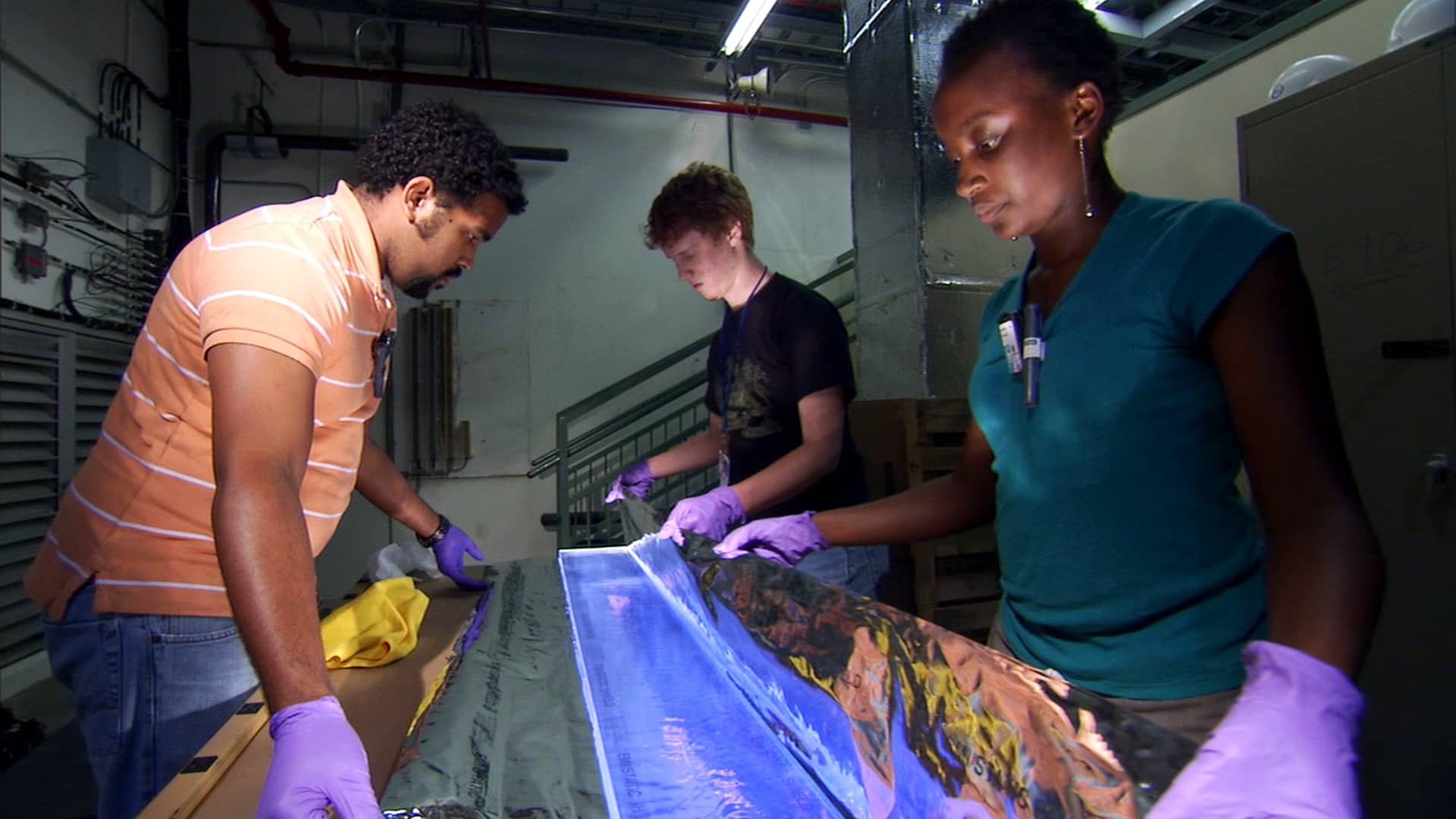Abilene Christian University students and faculty in the Department of Engineering and Physics contributed to research being published this week in Nature, one of the world’s leading science magazines. “The asymmetry of antimatter in the proton” was published in the Feb. 24 issue.
Enlarge

Understanding the properties of the proton helps physicists answer fundamental scientific questions. Studies of the proton have led to the development of proton therapy for cancer treatment, measurement of proton radiation during space travel and even understanding of star formation and the early universe. Proton research touches on fields including chemistry, astronomy, cosmology and biology, leading to advances in medicine, materials science and more.
Four now-alumni of ACU worked on the project as undergraduates and are listed alongside four faculty and staff as contributors to the paper.
“I can’t emphasize enough how rare it is for undergraduates to be listed on a paper in Nature magazine,” said Dr. Michael Daugherity, professor of engineering and physics. “Nature is one of the most prestigious journals in the field. They require that articles have a broad appeal, make a big impact in multiple areas, and have findings that are truly novel, not just an incremental update. Then it’s peer reviewed with multiple referees and multiple editors.”
But what’s rare in most scientific circles is the norm at ACU’s Department of Engineering and Physics.
“This is an example of why doing research with ACU allows students to get things on their résumés that they won’t get in very many places,” said Dr. Donald Isenhower, professor of engineering and physics. “Some of these students worked for multiple years on the experiment and did work that was on the critical path to get the measurements done correctly. Getting assigned such tasks shows the confidence of both our collaborators and ACU.”
Daugherity and Isenhower were contributors listed in the paper, along with Dr. Rusty Towell, professor of engineering and physics, and Shon Watson, research associate. The collaboration, named SeaQuest, took place at Fermi National Accelerator Laboratory near Chicago and involved around 30 institutions – universities from around the world and several major laboratories. The work is supported in part by the U.S. Department of Energy’s Office of Nuclear Physics and the National Science Foundation.
Although this particular project officially got underway in 2012, its roots go back to a previous research project involving ACU. Towell’s dissertation as a Ph.D. student focused on the same topic, based on research at Fermilab. Isenhower and Dr. Michael Sadler, former ACU professor of physics, were contributors on the earlier project that spurred the SeaQuest research.
Towell says the surprising results his dissertation research yielded 20 years ago made the ensuing follow-up research particularly important and intriguing.
“As a young scientist it was enlightening to see older scientists struggle with the data coming in that was not in line with their expectations,” he said. “It hinted at things we didn’t understand, but it didn’t give us the full answer, so immediately there was a desire to extend the measurement into another realm. Literally before we quit taking data from the first research, there was a proposal for this new experiment. It took decades to get it set up and approved and collect the data, so over those 20 years, a lot of people had to step away. I was not as integrally involved with this second project as with the first, but still, to be part of it and see data come in related to what I studied and what we learned, it felt like the next chapter of my dissertation.”
Learn more about ACU’s Department of Engineering and Physics.
Learn more about research at ACU.
— Wendy Kilmer
Feb. 25, 2021
